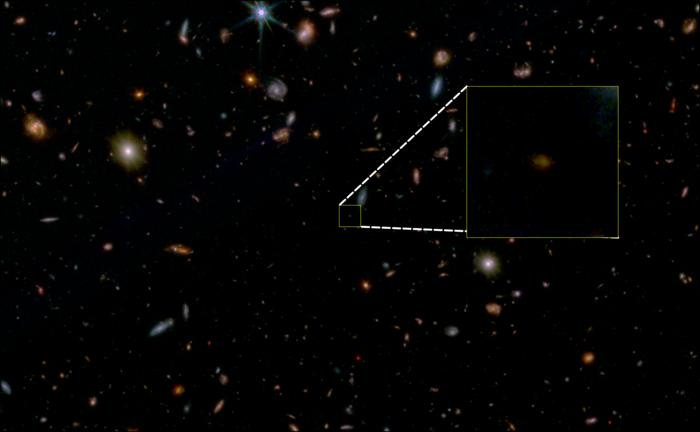The oldest 'extinct' galaxy has been seen, it has stopped producing new stars for at least 13 billion years and its discovery could change our knowledge of the primordial universe.
The faint light was observed by the James Webb space telescope and the data, published in the journal Nature, were analyzed by the international research group led by Tobias Looser, of the Kavli Institute of the University of Cambridge, and of which the Italian Stefano Carniani of the Scuola Normale Superiore of Pisa.
“The first few hundred million years of the universe were a very active phase, with many gas clouds collapsing to form new stars,” Looser said.
“Galaxies need a rich supply of gas to form new stars, and the early universe was like an all-you-can-eat buffet.”
But according to data from the Webb telescope, the ancient galaxy would have had a very intense and short life, so much so that the formation of stars within it would have stopped very quickly.
In fact, observations indicate that the galaxy generated stars for a period of between 30 and 90 million years, but between 10 and 20 million years before the moment in which it was now observed, star formation suddenly stopped.
Various factors can cause the 'death' of galaxies, but the most probable is the presence of a large black hole which attracts a large part of the interstellar gas to itself, eliminating the raw material necessary to give birth to new stars.
Usually this occurs in less distant times, the new galaxy is instead very ancient, born just 700 million years after the Big Bang.
“We're not sure that any of these known scenarios can explain what we saw with Webb,” said Roberto Maiolino of the Kavli institute and co-author of the study.
“Until now – he added – to understand the primordial universe, we have used models based on the modern universe.
But now that we can see much further back in time and observe that star formation died out so quickly in this galaxy, the models may need to be revised."
Reproduction reserved © Copyright ANSA

